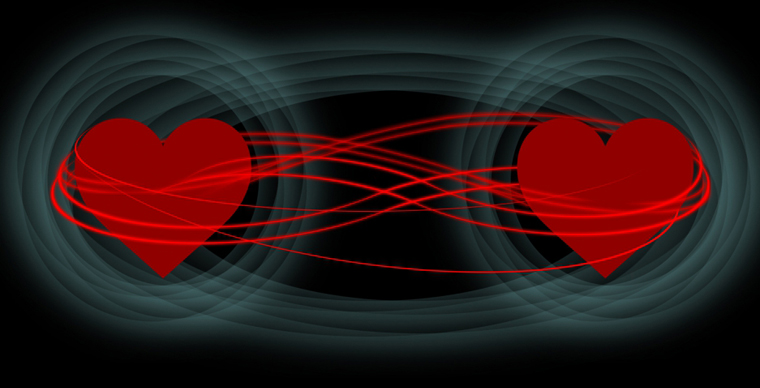
“You are a very strange man.” My wife Norma is smiling at me and gently shaking her head. Her comment follows my latest effort at romance. “Inherent non-locality means that when we kiss the entire universe is involved,” is what I said. Admittedly, this does not have the poetic charm of Shakespeare’s sonnets.
“I’m interested in the personal,” she says, “I really don’t care about how we affect the Andromeda galaxy.” But,” I press, “Everything is connected!” “OK, but what about the heart?” she presses back, “You spend too much time in your head.” She looks dubious as I make another stab at romance; “My heart, dear one, is in my head.”
I’m drawn to the general, and my wife to the particular. I’m reminded of a Ricky Gervais line from the film “Ghost Town.” An attractive woman asks him if he’d like to come to a reception, and when he says no, she asks him if he dislikes crowds; “Well, it’s not crowds I dislike,” he says. “It’s the individuals in the crowd.” There is something about general, universally all-pervasive non-locality I find soothing.
Now don’t get me wrong, I know that the smooth curves and perfect lines of a Euclidian universe don’t even exist. All and everything is a rough-edged fractal reality no matter how generally smooth or soothing we’d like things to be, and for a thinking-type like me, emotions are the most rough-edged reality of all.
“It’s you I love, not Schrödinger’s Cat,” chides Norma, referring to the classic not-dead-not-alive paradox of quantum mechanics. She’s listened to lectures from The Learning Company about physics while commuting to work, so it’s not like she doesn’t know about complexity. I like that in a wife. “And what about me?” she adds. “Do you love me or just the idea of me?”
She’s cleverly slicing through my narrative layers, of course; this is what comes of 35 years of marriage. “Of course I love you,” I say. “Though on an absolute level neither you nor I exist.” “There you go…you’re distancing again,” Norma replies with a classic feeling-type comment. “Did you really have to add that?” I quickly retreat, “OK, you’re right, that last comment was stupid. Of course I love you. No conditions. I love you.” We kiss, and I feel a subtle shift of dark matter in Andromeda.
Entanglement in marriage is all about harmonics, a combination of mood, tone, note and duration. In time the harmonic connection becomes so sensitive that it can be felt and transmitted through walls from distant ends of the house. Such marital entanglement sometimes feels science-fiction spooky. “I detect a life form, Captain,” might say Star Trek’s Mr. Spock, “and, Captain, she is not at all happy.”
Entanglement in quantum mechanics is the term a physicist uses for the spooky faster-than-light-speed connection that seems to exist between sub-atomic particles. They might have chosen the word love instead, but then most physicists are thinking-type men. Some physicists say that entanglement is not at all spooky, and is just the display of coherence in one probability set, of which there are many, perhaps an infinite number. “In a parallel universe I recite Shakespeare’s sonnets,” I whisper in Norma’s ear, sweetly. “And in that parallel universe,” she replies, “You’re making me laugh.”